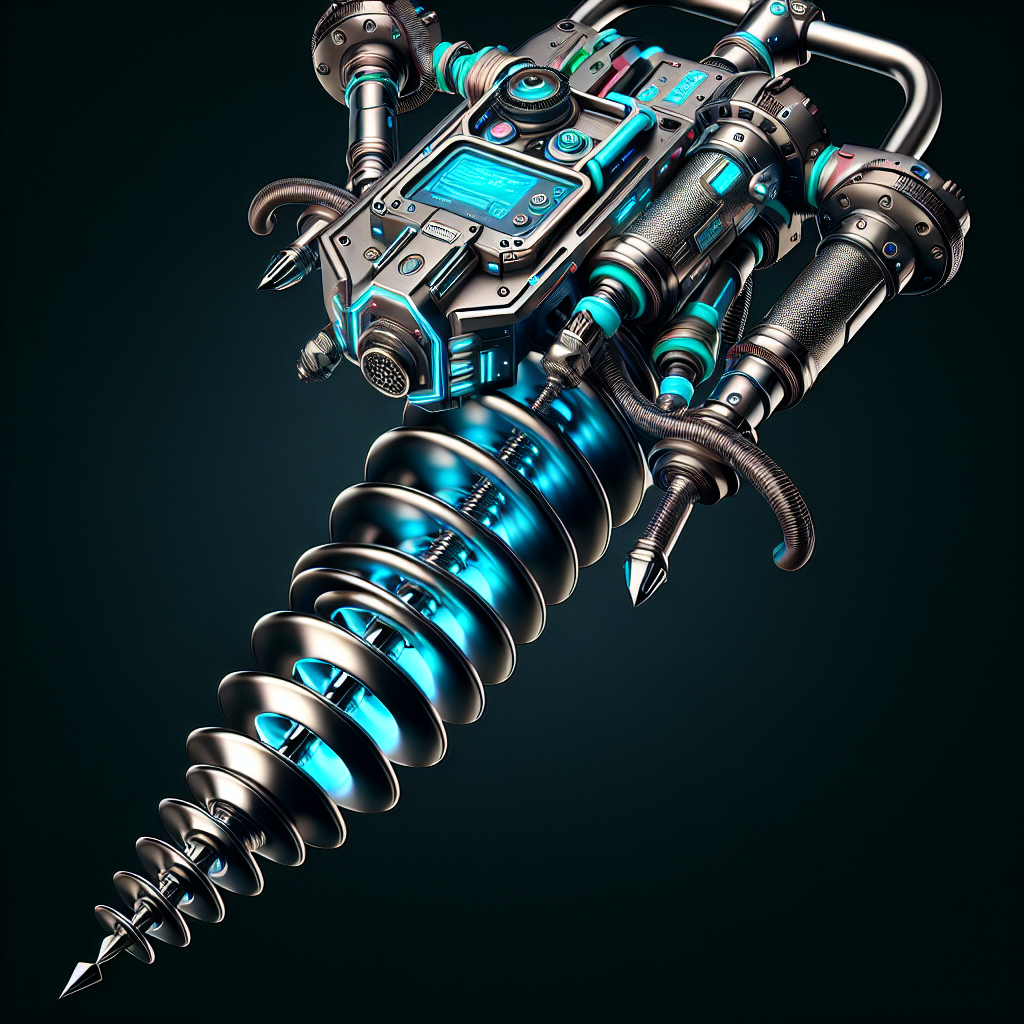Introduction to Gardening Auger
In the realm of agriculture and gardening, the use of technology has significantly enhanced efficiency and productivity. Gardening augers, in particular, have revolutionized the way we plant and cultivate crops. These specialized tools are designed to simplify the process of digging holes for planting, mixing soil, and even removing weeds. By automating these tasks, gardening augers save time and labor while improving precision in planting.
Definition and Functionality
According to gardening experts at Green Thumb Industries, a gardening auger is described as, "a tool that is used for drilling holes in the soil to facilitate planting of seeds, bulbs, or small plants." The auger typically consists of a helical blade or spiral that rotates to create holes of various sizes and depths.
Types of Gardening Augers
There are several types of gardening augers available, ranging from manual hand augers to gas-powered augers. Hand augers are suitable for smaller gardening projects, while gas-powered augers are more appropriate for larger-scale operations. Additionally, there are auger attachments designed for use with tractors or power drills, offering versatility in application.
Benefits of Using a Gardening Auger
The utilization of gardening augers brings forth a multitude of benefits for gardeners and farmers alike.
Time and Labor Efficiency
By automating the process of digging holes, gardening augers significantly reduce the time and physical effort required for planting. This efficiency allows gardeners to cover more ground in less time, leading to increased productivity.
Precision and Consistency in Planting
Gardening augers ensure a consistent hole size and depth, promoting uniformity in plant placement. This precision is crucial for proper seed germination and plant growth, ultimately leading to higher yields.
Reduced Physical Strain on Gardeners
The ergonomic design of gardening augers helps minimize the physical strain on users. By eliminating the need for manual digging, augers prevent injuries and fatigue, making gardening tasks more accessible to individuals of all ages and physical abilities.
Choosing the Right Gardening Auger
When selecting a gardening auger, it is essential to consider several factors to ensure optimal performance.
Considerations for Soil Type
Different soil types may require specific auger designs to achieve the desired results. For compacted or rocky soils, a heavy-duty auger with strong blades is recommended, while softer soils may require a lighter auger for optimal drilling.
Size and Depth Requirements
The size and depth of the holes needed for planting play a significant role in auger selection. Gardeners should choose an auger size that matches their planting needs, whether for bulbs, seeds, or seedlings. Adjustable augers offer flexibility in hole depth, accommodating various planting preferences.
Power Source Options
Gardening augers come in manual, electric, and gas-powered variants, each suited to different applications. Manual augers are eco-friendly and ideal for small-scale gardening, while electric and gas-powered augers offer more power for larger projects. Selecting the appropriate power source ensures efficient hole drilling based on the project's scale.
Case Studies and Examples
Successful Implementation in Large-Scale Farming
In a study by the Agricultural Innovation Research Institute, the use of gardening augers in large-scale farming operations resulted in a 30% increase in planting efficiency. Farmers reported significant time savings and improved crop yields due to the consistent planting depth achieved with augers.
Increased Productivity in Urban Gardening Projects
Urban gardening initiatives, such as community gardens and rooftop farms, have embraced gardening augers to maximize space and productivity. By utilizing augers for quick and precise planting, urban gardeners have been able to cultivate a wider variety of crops in limited urban spaces, promoting local food production.
Expert Insights on Gardening Auger Technology
Impact of Augers on Sustainable Agriculture
According to Dr. Emily Green, an agriculture technology specialist, gardening augers play a vital role in promoting sustainable agricultural practices. By reducing resource wastage and increasing planting efficiency, augers contribute to environmental conservation and food security initiatives.
Future Innovations in Auger Design
Leading manufacturers are continually refining auger designs to enhance performance and user experience. Innovations such as adjustable depth settings, interchangeable blades, and ergonomic handles are being incorporated into the latest auger models, catering to the diverse needs of gardeners and farmers.
Implications and Conclusion
Enhanced Efficiency and Yield in Gardening Practices
The adoption of gardening augers offers a transformative impact on gardening practices, enabling gardeners to work smarter, not harder. By streamlining planting processes and improving precision, augers enhance crop yields and contribute to overall garden health and vitality.
Potential Cost Savings and Environmental Benefits
In addition to improving productivity, gardening augers can lead to cost savings for farmers through reduced labor costs and minimized plant loss. Furthermore, the environmental benefits of using augers, such as soil conservation and reduced carbon emissions, position them as valuable tools in sustainable agriculture.
Call to Action for Further Research and Collaboration in Gardening Auger Technology
As gardening auger technology continues to evolve, there is immense potential for collaboration between researchers, manufacturers, and practitioners to further optimize auger performance and sustainability. By sharing insights, innovating design features, and conducting research on the long-term impact of auger use, we can propel agricultural practices towards a more efficient and sustainable future.
By embracing the advancements in gardening auger technology, individuals and organizations can contribute to a greener, more productive agricultural landscape that benefits both people and the planet.
Topics




